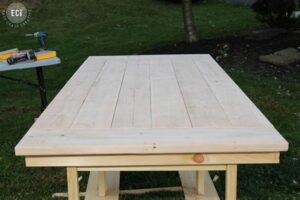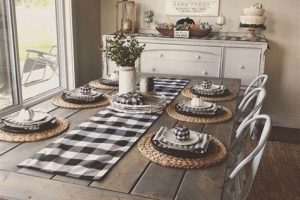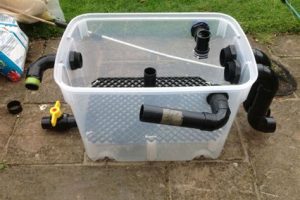Discover a variety of small farm DIY projects to enhance your homestead. From building chicken coops and raised garden beds to creating compost bins and beekeeping setups, find step-by-step guides and tips to transform your small farm into a thriving self-sufficient oasis. Explore sustainable and cost-effective solutions for your agricultural endeavors with these practical and rewarding DIY projects.
Are you a small-scale farmer looking to take your farm to the next level? Are you interested in exploring do-it-yourself projects that can enhance your farm’s productivity and efficiency? Look no further! Small farm DIY projects are the perfect way to upgrade your operation without breaking the bank. From building your own chicken coop to constructing a solar-powered irrigation system, these projects can revolutionize the way you manage your farm. In this article, we will explore some exciting DIY projects that are sure to catch your attention and help you transform your small farm into a thriving enterprise.
Introduction
In recent years, the DIY movement has gained significant traction, with individuals embracing their creativity and taking up various projects to enhance their homes or gardens. For small farm owners, DIY projects can be a great way to improve efficiency, save money, and add a personal touch to their operations. In this article, we will explore ten exciting and practical small farm DIY projects that you can undertake to enhance your farm’s functionality and aesthetics.
Raised Bed Gardens
One of the most popular small farm DIY projects is building raised bed gardens. This project involves constructing elevated garden beds, typically using wood, and filling them with nutrient-rich soil. Raised bed gardens offer numerous benefits, including better soil drainage, increased accessibility, and improved pest control. They are particularly ideal for growing vegetables, herbs, and flowers.
Mobile Chicken Coops
If you have chickens on your small farm, building a mobile chicken coop can be a fantastic DIY project. A mobile coop allows you to move your chickens around the property, providing them with fresh grazing areas while saving your grass from being overgrazed. These coops can be constructed using recycled materials and can be easily transported with the help of wheels or handles.
Compost Bins
Creating compost is essential for maintaining healthy soil and reducing waste on your small farm. Building a compost bin is a simple and practical DIY project that can help you transform kitchen scraps, yard waste, and animal manure into nutrient-rich compost. You can construct compost bins using wooden pallets, wire mesh, or even repurposed barrels.
Rainwater Collection Systems
Conserving water is crucial, especially for small farms. A DIY rainwater collection system can help you harness and store rainwater for various uses, such as watering plants, livestock, or cleaning equipment. These systems typically involve installing gutters, downspouts, and storage tanks to collect and store rainwater efficiently.
Tool Storage Shed
Keeping your tools organized and protected is vital for any small farm owner. Building a tool storage shed can be an excellent DIY project that provides a designated space to store and maintain your farm tools. You can customize the shed’s design to suit your needs and include shelves, hooks, and compartments for efficient tool organization.
Solar-Powered Electric Fence
For those with livestock, a solar-powered electric fence can be a game-changer. This DIY project involves installing a fence that is powered by solar panels, eliminating the need for electricity connections or batteries. It provides an efficient and cost-effective way to contain your livestock while keeping predators out.
Greenhouse
If you want to extend your growing season and protect delicate plants, building a greenhouse is an ideal small farm DIY project. A greenhouse provides a controlled environment for growing plants, shielding them from harsh weather conditions. You can construct a greenhouse using a variety of materials, such as PVC pipes, wood, or even repurposed windows.
Perimeter Fencing
Creating a secure perimeter around your small farm is essential for the safety and security of your animals and crops. Building a sturdy and reliable perimeter fence is a DIY project that requires careful planning and execution. Depending on your specific needs, you can choose from various fencing options, including wooden, wire, or electric fences.
Herb Drying Rack
If you grow herbs on your small farm, having a dedicated herb drying rack can be incredibly convenient. This DIY project involves creating a space where you can air-dry and store your harvested herbs. You can use simple materials like wooden dowels or repurpose an old ladder to create a functional and visually appealing herb drying rack.
Conclusion
Undertaking small farm DIY projects can be both rewarding and beneficial for any farm owner. Not only do these projects allow you to customize your farm according to your specific needs, but they also promote sustainability, efficiency, and cost savings. Whether it’s building raised bed gardens, constructing a greenhouse, or setting up a rainwater collection system, there are countless opportunities to unleash your creativity and enhance your small farm.
Raised Bed Gardening: A Sustainable Solution for Small Farms
Small farm owners can optimize their growing space by constructing raised beds, utilizing vertical planting techniques, and efficient irrigation systems. With the right materials and proper planning, building raised beds can be a cost-effective and accessible DIY project for small-scale farmers. By implementing this project, farmers can organize their crops more effectively, control soil quality, and minimize weed intrusion while promoting air circulation for healthier plants.
Homemade Chicken Coops: Promoting Self-Sufficiency and Animal Welfare
Building a chicken coop is an essential DIY project for small farmers aiming to raise their own poultry in a cost-effective and humane manner. Designing and constructing a chicken coop allows farmers to customize the space according to their flock’s requirements, ensuring adequate shelter, ventilation, and protection from predators. This project promotes sustainable egg and meat production, reduces reliance on commercial suppliers, and aligns with ethical farming practices.
DIY Composting Systems: Transforming Waste into Nutrient-Rich Soil
Small-scale farmers can enhance soil fertility and minimize waste by creating their own composting system. Building a compost bin or pile provides an eco-friendly solution for disposing of organic matter while adding valuable nutrients back into the soil. This DIY project not only reduces reliance on synthetic fertilizers but also helps small farms manage and recycle their organic waste effectively.
Rainwater Harvesting: Maximizing Water Resources for Sustainable Agriculture
Small farmers can take advantage of rainwater harvesting systems to supplement their irrigation needs and reduce reliance on freshwater sources. Constructing a rainwater collection system, such as rain barrels or underground tanks, allows farmers to capture and store rainwater for later use in their fields or livestock operations. This DIY project promotes sustainability by conserving water resources and can significantly reduce irrigation costs for small farms.
Beeswax Candle Making: Enhancing Productivity and Supporting Pollinators
Small farmers can engage in beekeeping and utilize beeswax from their hives to create handmade candles for personal use or as a value-added product to generate additional income. By learning the art of candle making, farmers can tap into the growing demand for natural and sustainable products while supporting bee populations critical for crop pollination. This project promotes self-reliance, allows farmers to explore creative outlets, and serves as a reminder of the importance of pollinators in agriculture.
DIY Fruit Tree Grafting: Diversifying Crop Varieties on Small Farms
Small farmers can experiment with grafting techniques to propagate various fruit tree varieties in their orchards and maximize the potential of their limited space. Grafting allows farmers to combine the desirable qualities of different fruit tree species, boosting productivity and creating unique crop hybrids. By mastering grafting skills through DIY projects, small farm owners can expand their fruit tree diversity, extend harvest seasons, and cater to niche markets with an array of distinct and flavorful fruits.
Solar Power Installation: Harnessing Renewable Energy for Small Farms
Small farm owners can reduce their dependency on traditional electricity sources by installing solar panels to generate clean, renewable energy. This DIY project not only helps farms become more sustainable but also reduces energy costs over time, improving their overall profitability. By embracing solar power, small farms contribute to a greener future, reduce their carbon footprint, and inspire others to adopt eco-friendly farming practices.
DIY Farm Signs and Labels: Enhancing Branding and Marketing Opportunities
Customizing farm signs and labels can be a fun and engaging DIY project, allowing small farmers to showcase their unique brand and attract customers. Through creative design and craftsmanship, farm owners can develop eye-catching signs for their roadside stands, products, or farm gates, creating a lasting impression on potential customers. This project promotes effective marketing, enhances the farm’s visual identity, and fosters a strong connection between the farmer and the local community.
Small Farm DIY Projects: A Professional Perspective
When it comes to running a small farm, there are countless tasks and projects that need to be undertaken to ensure its efficiency and success. While hiring professionals for every single project might seem like the most logical choice, there are several small farm DIY projects that can be tackled with a little bit of effort and the right tools. In this article, we will explore the benefits of taking on these projects yourself, as well as provide some examples of small farm DIY projects that can be easily accomplished.
Benefits of Small Farm DIY Projects
- Cost-effectiveness: One of the primary advantages of tackling small farm DIY projects is the potential cost savings. Hiring professionals for every task can quickly add up, straining the farm’s finances. By taking on some projects yourself, you can significantly reduce expenses and allocate resources more efficiently.
- Flexibility: Another benefit of DIY projects is the flexibility they offer. As a farmer, you understand the unique needs and requirements of your farm better than anyone else. By doing the projects yourself, you have the freedom to customize solutions that are tailored specifically to your farm’s size, layout, and operational needs.
- Learning experience: Engaging in small farm DIY projects can be an excellent opportunity for personal growth and skill development. By learning new techniques and gaining hands-on experience, you become more self-sufficient and capable of handling various aspects of farm maintenance and improvement.
- Sense of accomplishment: Successfully completing a DIY project on your farm can be incredibly fulfilling. It not only saves money but also instills a sense of pride and accomplishment in knowing that you were able to tackle a task independently and achieve a positive outcome.
Examples of Small Farm DIY Projects
- Building and repairing fences: Fences are crucial for managing livestock and protecting crops. With the right tools and materials, farmers can construct and repair fences themselves, saving money on labor costs and ensuring that the job is done according to their specific needs.
- Constructing simple structures: Building small sheds, chicken coops, or storage units can be easily accomplished by following DIY plans and utilizing basic carpentry skills. These structures provide essential shelter for animals, equipment, or feed storage.
- Creating raised beds for gardening: Raised bed gardening offers numerous benefits, including better soil drainage, weed control, and improved accessibility. By building raised beds yourself, you can customize their size and layout to fit the available space and optimize your farm’s vegetable or flower production.
- Installing irrigation systems: Efficient water management is essential for any farm. Installing irrigation systems, such as drip irrigation or sprinklers, can be a DIY project that helps ensure proper hydration for crops and saves time spent manually watering.
- Building compost bins: Composting organic waste is an effective way to create nutrient-rich soil for your farm. Constructing compost bins using recycled materials is a cost-effective DIY project that promotes sustainability and reduces waste.
It is important to note that while small farm DIY projects can be rewarding and cost-effective, there may be instances where professional assistance is necessary. For complex tasks or projects that require specialized knowledge and equipment, seeking professional help is always recommended.
In conclusion, small farm DIY projects offer numerous benefits, including cost-effectiveness, flexibility, learning experiences, and a sense of accomplishment. By taking on these projects, farmers can save money, develop new skills, and customize solutions that best suit their specific farm needs. With careful planning and the right resources, small farm owners can successfully undertake DIY projects and contribute to the overall success and sustainability of their operations.
Dear blog visitors,
Thank you for taking the time to visit our blog and explore the wonderful world of small farm DIY projects. We hope that through this article, you have gained valuable insights and inspiration to embark on your own agricultural journey. As we conclude this blog post, we would like to leave you with some final thoughts and encouragement.
Firstly, we want to emphasize the importance of starting small when it comes to DIY projects on your farm. It can be tempting to dive headfirst into ambitious endeavors, but it is essential to remember that Rome wasn’t built in a day. Begin by identifying one or two projects that align with your goals and resources. This could be constructing a simple chicken coop, setting up a compost system, or building raised beds for your vegetable garden. By starting small, you will be able to learn and grow along the way, avoiding overwhelming challenges and setbacks.
Additionally, we want to stress the significance of seeking professional guidance and advice when necessary. While DIY projects can be incredibly rewarding, they also require knowledge and expertise in various areas. Don’t hesitate to reach out to local agricultural extension offices, experienced farmers, or even online communities for assistance. These resources can provide valuable insights, tips, and troubleshooting guidance, ensuring that your small farm DIY projects are executed efficiently and effectively.
Finally, we encourage you to approach each DIY project with an open mind and a willingness to learn. Farming is a continuous learning process, and every project presents an opportunity for growth. Don’t be discouraged by mistakes or setbacks; instead, view them as valuable lessons that will contribute to your overall success. Embrace the challenges, celebrate the victories, and never stop exploring new ways to improve and expand your small farm.
In conclusion, we hope that this blog post has ignited your passion for small farm DIY projects and provided you with practical insights to get started. Remember to start small, seek professional guidance when needed, and approach each project with an open mind. By doing so, you will not only enhance your farming skills but also create a sustainable and fulfilling agricultural lifestyle.
Thank you once again for visiting our blog, and we wish you the best of luck on your small farm DIY journey!
Video Small Farm Diy Projects
Here are some common questions that people also ask about Small Farm DIY Projects:
1. What are some useful DIY projects for a small farm?
- Building chicken coops or runs
- Constructing raised beds for vegetable gardens
- Creating compost bins or composting systems
- Installing rainwater harvesting systems
- Designing and building a small greenhouse
- Constructing fences or gates for livestock enclosures
2. How can I build a chicken coop for my small farm?
Building a chicken coop for your small farm can be a rewarding DIY project. Here are some general steps to follow:
- Determine the size and design of your chicken coop based on the number of chickens you plan to house.
- Gather the necessary materials, including wood, wire mesh, roofing materials, and hardware.
- Prepare the site by clearing the area and leveling the ground.
- Construct the frame of the coop and attach the walls, ensuring proper ventilation and security.
- Add nesting boxes, roosting bars, and a door with a latch for easy access.
- Install the wire mesh on windows and openings to protect against predators.
- Finish the coop by adding roofing materials and painting or sealing for weather resistance.
3. How do I create raised beds for my small farm?
Creating raised beds for your small farm can provide numerous benefits. Follow these steps:
- Select a suitable location with adequate sunlight and access to water.
- Measure and mark the dimensions of your raised beds based on your space and needs.
- Clear the area of any grass or weeds and level the ground.
- Construct the frames using untreated lumber or other suitable materials.
- Fill the raised beds with a mixture of quality soil, compost, and organic matter.
- Plant your desired crops or flowers in the raised beds, following proper spacing guidelines.
- Maintain the beds by watering, weeding, and adding organic mulch as needed.
4. Are there any DIY projects for small farms that can help conserve water?
Absolutely! Here are a few DIY projects to help conserve water on a small farm:
- Installing a rain barrel system to collect and store rainwater for irrigation purposes.
- Setting up a drip irrigation system that delivers water directly to plant roots, minimizing waste.
- Designing and building a graywater recycling system to reuse household water for garden irrigation.
Remember, when undertaking any DIY project for your small farm, it’s essential to prioritize safety, follow local regulations, and seek professional advice if necessary.






